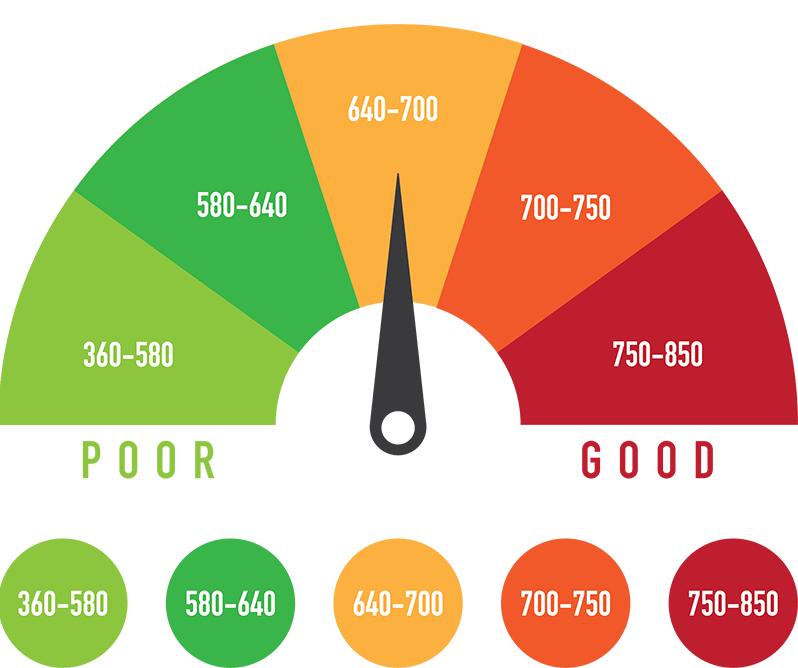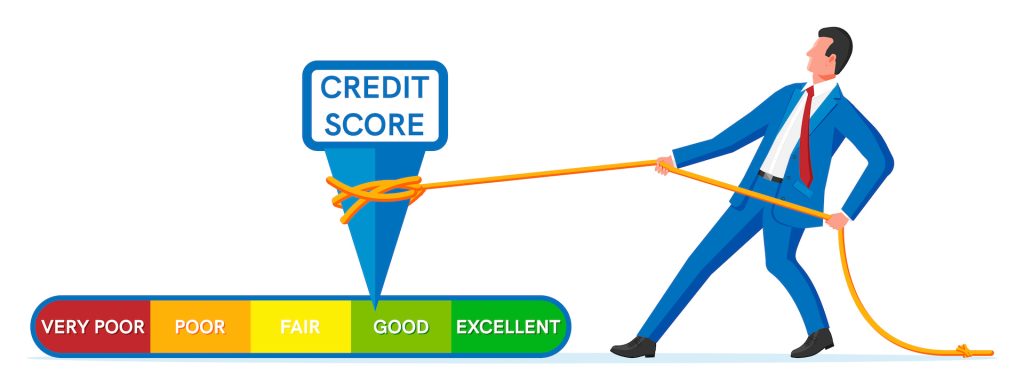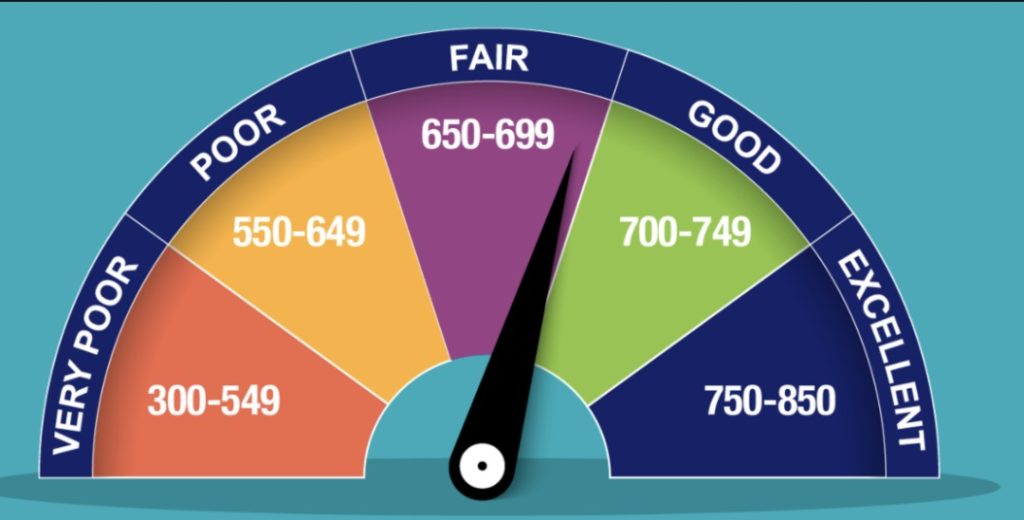How to Build and Establish Credit: The full Breakdown
Introduction
In today’s world, establishing good credit is crucial for financial stability and opportunities. Whether you’re looking to apply for a loan, rent an apartment, or secure a low-interest credit card, having a solid credit history is essential. Building and establishing credit may seem daunting at first, but with the right knowledge and strategies, you can pave the way to a strong credit foundation. In this comprehensive guide, we will explore the key steps and expert tips on how to build and establish credit effectively. Let’s dive in!

Understanding the Importance of Credit
Credit is essentially a measure of your financial trustworthiness. It represents your ability to borrow money and pay it back in a timely manner. Lenders, landlords, and even potential employers often rely on credit scores to assess your reliability and determine whether you’re a suitable candidate for a loan, lease, or job. Establishing a positive credit history is not only important for accessing financial opportunities but also for obtaining favorable interest rates and terms. Now, let’s explore how you can assess your current credit standing to better understand where you stand.
Assessing Your Current Credit Standing
Before embarking on your credit-building journey, it’s crucial to assess your current credit standing. This will give you a starting point and help you understand the areas you need to focus on. Here are the key steps to assess your credit:
- Obtain your credit reports: Request a free copy of your credit reports from the major credit bureaus such as Experian, Equifax, and TransUnion. Review the reports for accuracy, noting any errors or discrepancies.
- Check your credit score: Your credit score provides a snapshot of your creditworthiness. Many websites offer free credit score checks, or you can consider subscribing to a credit monitoring service for more comprehensive insights.
- Analyze your credit history: Dive deeper into your credit reports to examine your payment history, outstanding debts, and any negative remarks or delinquencies. Understanding these factors will help you identify areas for improvement.
By assessing your credit standing, you’ll gain valuable insights into your current financial situation and be better equipped to build and establish credit effectively.
Getting Started: The Basics of Credit Building
Building credit from scratch may seem challenging, but it’s entirely possible with the right approach. Here are the fundamental steps to get started:
- Open a bank account: Start by establishing a checking or savings account if you haven’t already. Having a bank account demonstrates stability and provides a foundation for future financial activities.
- Apply for a secured credit card: A secured credit card is an excellent option for beginners as it requires a cash deposit as collateral. This deposit serves as your credit limit and minimizes the risk for the lender. Make timely payments and keep your credit utilization low to gradually build positive credit history.
- Become an authorized user: If you have a trusted friend or family member with a good credit history, ask if they can add you as an authorized user to one of their credit cards. Their responsible credit usage will reflect positively on your credit report, boosting your creditworthiness.
- Explore credit builder loans: Some financial institutions offer credit builder loans specifically designed to help individuals establish credit. These loans typically involve making regular payments into a locked savings account, and once the loan is paid off, you receive the funds plus the accrued interest.
Remember, building credit takes time and patience. By starting with these foundational steps, you’ll be on your way to establishing a solid credit history.

Establishing Credit with a Credit Card
A credit card can be a powerful tool for building and establishing credit. However, it’s crucial to use it responsibly and avoid falling into debt. Here are some tips for leveraging a credit card to build credit:
- Apply for a starter credit card: Look for credit cards specifically designed for individuals with limited credit history. These cards may have higher interest rates or annual fees, but they provide an opportunity to build credit.
- Make small purchases: Start by using your credit card for small, manageable purchases, such as groceries or gas. This allows you to build a payment history without accumulating excessive debt.
- Pay your balance in full: To avoid interest charges, strive to pay your credit card balance in full each month. This demonstrates responsible credit usage and helps establish a positive payment history.
- Keep your credit utilization low: Aim to keep your credit utilization ratio below 30%. This means using no more than 30% of your available credit limit. High credit utilization can negatively impact your credit score.
- Set up payment reminders: Missing credit card payments can harm your credit. Set up payment reminders or automatic payments to ensure you never miss a due date.
By utilizing a credit card wisely and making timely payments, you can establish a positive credit history and improve your credit score over time.
Alternative Options – How to build and establish credit
While credit cards are a popular tool for building credit, they’re not the only option available. Here are some alternative methods to consider:
- Credit-builder loans: As mentioned earlier, credit-builder loans can be an effective way to establish credit. These loans are specifically designed to help individuals build credit by making regular payments.
- Secured loans: Similar to secured credit cards, secured loans require collateral. By securing a small loan with collateral, such as a savings account, you can build credit while minimizing risk for the lender.
- Peer-to-peer lending: Online platforms that facilitate peer-to-peer lending, like LendingClub or Prosper, can offer credit-building opportunities. Borrowing a small amount and consistently making payments can help establish a positive credit history.
- Rent reporting services: Rental payments often go unreported to credit bureaus. However, using rent reporting services such as RentTrack or LevelCredit allows your rent payments to contribute to your credit history.
Exploring these alternative options can be beneficial, especially if you’re unable to qualify for a traditional credit card or prefer to diversify your credit-building approach.

Managing Credit Responsibly
Establishing credit is not solely about building a positive credit history but also about managing credit responsibly. Here are some key practices to ensure you maintain healthy credit:
- Pay your bills on time: Consistently making timely payments is one of the most important factors in building and maintaining good credit. Late payments can have a significant negative impact on your credit score.
- Avoid excessive debt: While it’s essential to use credit, be mindful not to accumulate excessive debt. Keep your balances low and only borrow what you can comfortably repay.
- Monitor your credit reports: Regularly check your credit reports for accuracy and potential signs of fraud or identity theft. Monitoring your credit ensures you catch any errors or suspicious activities early.
- Keep credit accounts open: Closing credit accounts may seem like a good idea, but it can negatively affect your credit utilization ratio and overall credit history. If possible, keep your accounts open and active, even if you’re not using them regularly.
- Diversify your credit mix: Having a mix of different types of credit, such as credit cards, installment loans, and mortgages, can positively impact your credit score. However, avoid taking on unnecessary debt simply to diversify your credit mix.
By implementing these responsible credit management practices, you can safeguard your creditworthiness and continue building a strong credit profile.
Maintaining a Healthy Credit Score
Once you’ve established credit, maintaining a healthy credit score becomes crucial. Here are some strategies to help you maintain a good credit score:
- Regularly check your credit score: Stay proactive by monitoring your credit score regularly. This allows you to identify any sudden drops or negative changes that may require attention.
- Pay attention to credit utilization: As mentioned earlier, keeping your credit utilization ratio below 30% is vital. Regularly review your credit card balances and make adjustments as needed to maintain a healthy utilization rate.
- Avoid opening unnecessary credit accounts: While having a diversified credit mix is beneficial, avoid opening new credit accounts if you don’t genuinely need them. Each new account creates a hard inquiry on your credit report, which can temporarily lower your score.
- Review your credit reports annually: Request and review your credit reports from the major credit bureaus annually. This allows you to identify any errors or inaccuracies and take steps to rectify them promptly.
By consistently monitoring and managing your credit score, you can proactively address any issues that may arise and ensure your credit remains in good standing.
Dealing with Credit Challenges
Building and establishing credit may not always be a smooth journey. Various challenges can arise along the way. Here’s how to navigate common credit-related obstacles:
- Addressing credit errors: If you identify errors or inaccuracies on your credit reports, take immediate action to dispute them. Contact the credit bureaus and provide supporting documentation to rectify the errors.
- Rebuilding credit after financial setbacks: If you’ve experienced financial hardships that resulted in poor credit, don’t lose hope. Focus on rebuilding your credit by making timely payments, reducing debt, and practicing responsible credit management.
- Dealing with collections or delinquencies: If you have outstanding collections or delinquent accounts, consider negotiating with the creditors to establish a repayment plan or settle the debts. Taking proactive steps to address these issues can help rebuild your credit.
Remember, building and establishing credit is a journey, and setbacks are not uncommon. Stay committed, seek professional advice if needed, and work diligently to overcome any challenges you encounter.

Common Credit Building Myths – How to build and establish credit
While there is plenty of information available about credit building, it’s essential to separate fact from fiction. Let’s debunk some common credit-building myths:
- Myth: Closing credit cards improve your credit: Closing credit cards can actually lower your credit score by reducing your overall available credit and impacting your credit utilization ratio. Unless necessary, keep your credit accounts open.
- Myth: You need to carry a balance on your credit card: Carrying a balance does not improve your credit. In fact, paying your balance in full and on time demonstrates responsible credit usage and can boost your credit score.
- Myth: Checking your credit hurts your score: Checking your own credit reports or scores is considered a soft inquiry and does not harm your credit. It’s encouraged to monitor your credit regularly.
- Myth: Opening multiple credit cards at once helps your credit: Opening multiple credit accounts within a short period can actually lower your credit score. Each new account creates a hard inquiry and can indicate higher risk to lenders.
By understanding and debunking these myths, you can make informed decisions and navigate the credit-building process more effectively.
FAQs on How to build and establish credit
- Q: How long does it take to build good credit? A: Building good credit is a gradual process that takes time and consistent effort. It typically takes several months to a year of responsible credit usage to start seeing significant improvements.
- Q: Will closing old credit cards hurt my credit score? A: Closing old credit cards can potentially lower your credit score. It’s often advisable to keep these accounts open, especially if they have a long credit history and a positive payment record.
- Q: Can I build credit without a credit card? A: Yes, it’s possible to build credit without a credit card. Options such as credit-builder loans, secured loans, and rent reporting services can help you establish creditworthiness.
- Q: Will my credit score improve if I pay off all my debt? A: Paying off your debt can positively impact your credit score by reducing your credit utilization ratio. However, other factors, such as payment history and length of credit history, also influence your score.
- Q: Can a cosigner help me establish credit? A: Yes, having a cosigner with established credit can increase your chances of getting approved for loans or credit cards. Their good credit history can positively impact your creditworthiness.
- Q: How often should I check my credit reports? A: It’s recommended to check your credit reports from each major credit bureau at least once a year. Regular monitoring can help you detect errors or signs of identity theft.
Conclusion
Building and establishing credit is a crucial step toward financial success. By following the strategies and tips outlined in this guide, you can lay a solid foundation for a healthy credit profile. Remember to start with the basics, explore different credit-building options, manage credit responsibly, and monitor your credit regularly. Building good credit takes time and patience, but the rewards are well worth the effort. Take control of your financial future by building and establishing credit today!
You can also buy instant:


Cashapp Money Transfer Click here
Paypal Money Transfer Click here
Western Union Money Transfer Click here
Venmo Money Transfer Click here
Bank Money Transfer Click here to Contact Us
